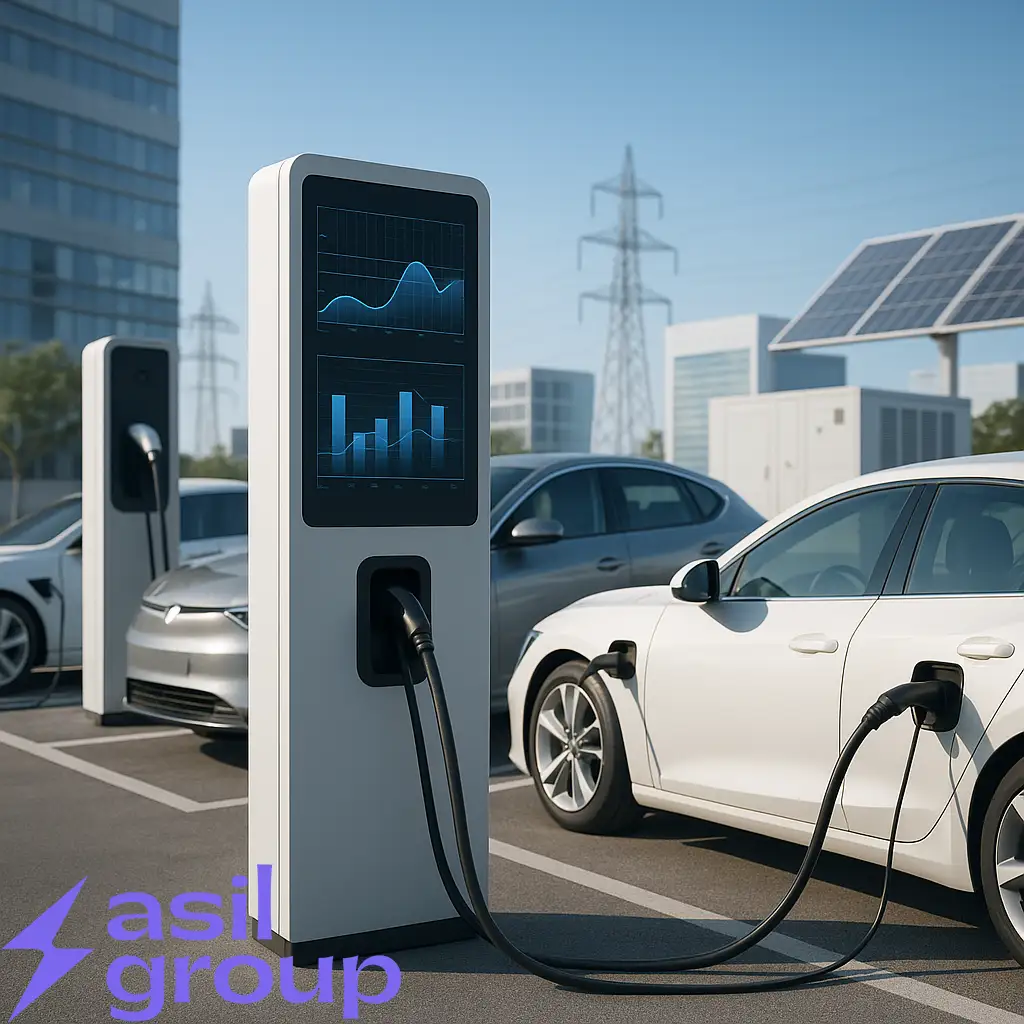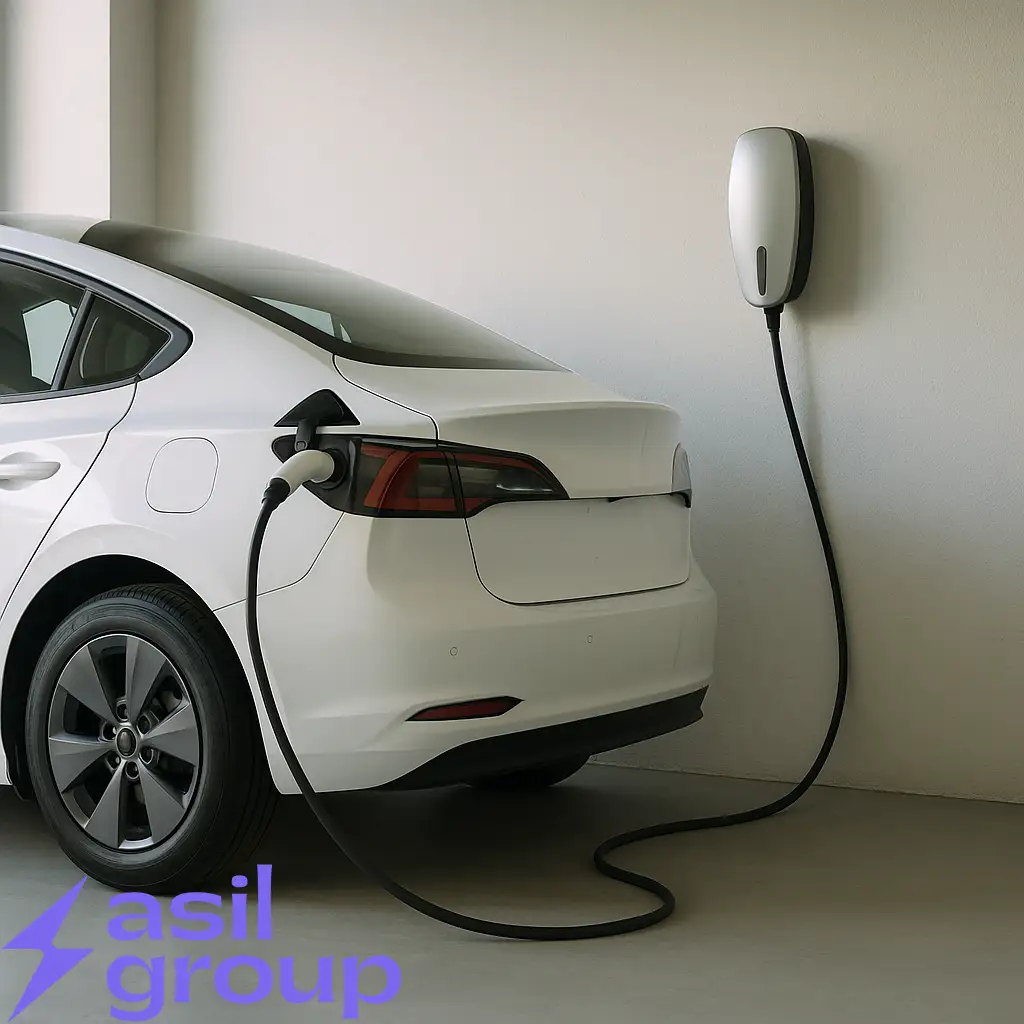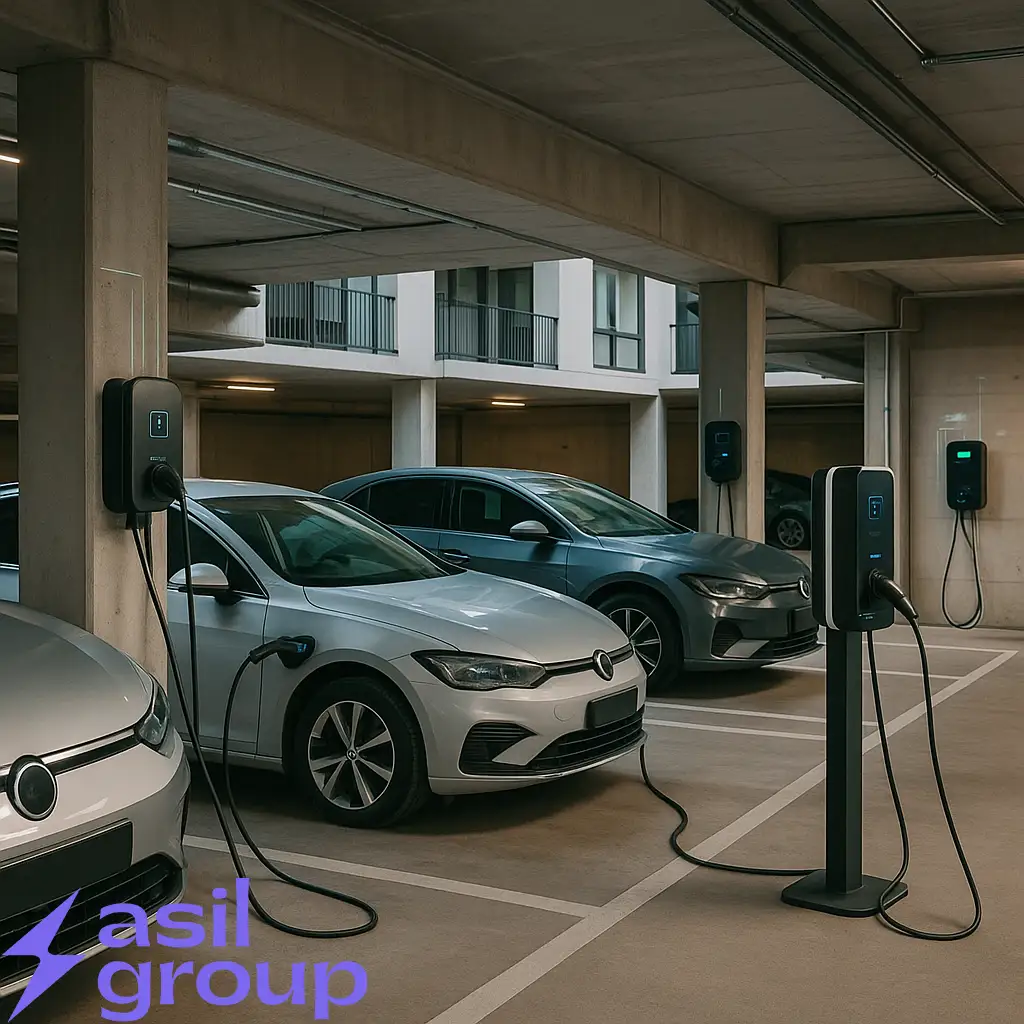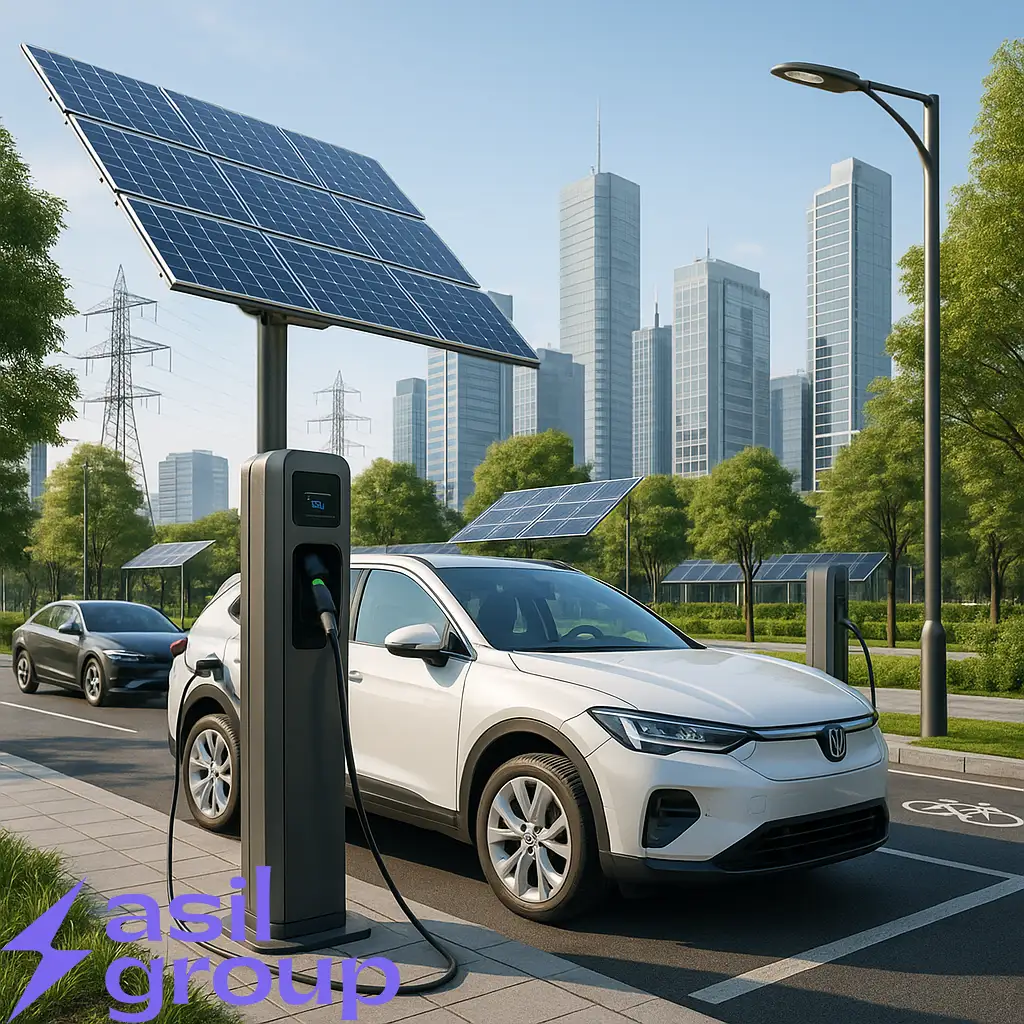
Smart Load Management in EV Charging Networks
Back to all posts As electric vehicle (EV) adoption accelerates globally,

As electric vehicles (EVs) become more popular, many drivers are exploring the best way to charge their car at home. But choosing the right EV charger can be confusing—especially if you live in an apartment, shared parking facility, or want to future-proof your home setup.
In this article, we compare different types of home EV chargers, explain their use cases, and help you decide which charger suits your location and lifestyle.
Public charging stations are growing, but home EV charging stations remain the most convenient and cost-effective way to power your vehicle. Whether you’re in a single-family house or a multi-unit apartment, installing the right electric car charger makes daily use easy, reliable, and energy-efficient.
EV chargers are generally categorized into three levels:
Power Output: ~1.4 kW (120V)
Charging Time: 8–20 hours for a full charge
Best For: Low-mileage drivers, plug-in hybrids, emergency backup
Pros:
Uses a standard household outlet
No installation cost
Works anywhere with a plug
Cons:
Extremely slow
Not ideal for fully electric cars
Not suitable for apartments with limited access
Power Output: 3.6 to 22 kW (240V)
Charging Time: 4–8 hours for a full charge
Best For: Daily EV use, apartment charging stations, shared parking
Pros:
3–6x faster than Level 1
Compatible with almost all EVs
Smart features: scheduled charging, energy monitoring
Ideal for wall-mounted home EV charger setups
Cons:
Requires professional installation
Electrical panel upgrade may be needed
Higher upfront cost
Power Output: 50 kW to 350 kW
Charging Time: 15–30 minutes (up to 80% battery)
Best For: Public charging stations, highway rest stops, commercial properties
Pros:
Ideal for long-distance travelers
Required for high-capacity EV fleets
Cons:
Very expensive and complex
Not suitable for homes or small buildings
Requires industrial power access
| Scenario | Recommended Charger |
|---|---|
| Private garage at home | Level 2 wallbox charger |
| Apartment with shared parking | Smart Level 2 charger with billing support |
| Plug-in hybrid and low daily mileage | Level 1 (with upgrade path) |
| Commercial or fleet EV use | Level 3 (DC charger) |
Electrical capacity of your building
Local regulations and permits
Distance from the main panel to parking spot
Need for billing or load balancing in multi-unit settings
Modern EV chargers often include features such as:
App-based control
Load balancing
Dynamic energy management
Solar integration
RFID or mobile access control
These capabilities are especially useful for apartments or commercial locations where multiple users rely on the same system.
Choosing the right EV charger depends on your car, your usage habits, and your building’s infrastructure. For most users, a Level 2 wall-mounted charger offers the best combination of performance, cost-efficiency, and future readiness.
Before installing, it’s important to consult an EV charging specialist to ensure safety, compatibility, and compliance with local standards.

Back to all posts As electric vehicle (EV) adoption accelerates globally,

Back to all posts As electric vehicles (EVs) become more common,

Back to all posts The rise of electric vehicles (EVs) is

Back to all posts As electric vehicle (EV) adoption accelerates globally,

Back to all posts As electric vehicles (EVs) become more common,
Asil Group offers cost-effective and eco-friendly EV transportation solutions. We focus on convenience with AC chargers, DC fast chargers, and Wallbox chargers, serving premium locations and enhancing quality of life with smart, sustainable EV charging.
Asil Group offers cost-effective and eco-friendly EV transportation solutions. We focus on convenience with AC chargers, DC fast chargers, and Wallbox chargers, serving premium locations and enhancing quality of life with smart, sustainable EV charging.
Asil Group offers cost-effective and eco-friendly EV transportation solutions. We focus on convenience with AC chargers, DC fast chargers, and Wallbox chargers, serving premium locations and enhancing quality of life with smart, sustainable EV charging.
Phone: +98 21 22221422
Email: [email protected]